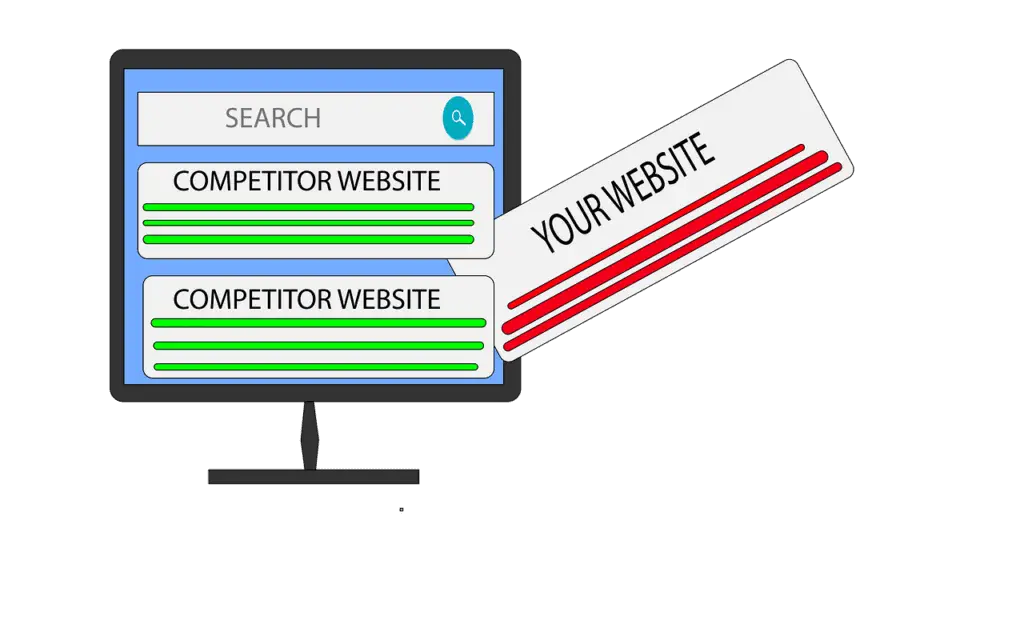In the fast-paced world of e-commerce, staying ahead of your competitors is crucial for success. One effective strategy to gain an edge is to reverse engineer your competitor’s links. By analyzing and understanding the backlinks that drive traffic to their websites, you can uncover valuable insights and replicate their success. In this article, we will explore the process of reverse engineering your competitor’s links and provide practical tips on how to implement this strategy effectively. So, grab a cup of coffee and get ready to take your e-commerce game to the next level!
Understanding the Importance of Link Analysis
Link analysis plays a critical role in the success of e-commerce businesses. By analyzing the links of your competitors, you can gain valuable insights into their website’s performance, their link building strategies, and the opportunities available for your own website.
Why link analysis is important for e-commerce?
Link analysis is important for e-commerce because it allows you to understand the link profile of your competitors and identify areas where you can improve your own website’s link building strategy. By analyzing the links of your competitors, you can discover new websites to target for link acquisition, identify potential link opportunities, and gain a competitive advantage in the online marketplace.
The role of competitor analysis in link-building
Competitor analysis plays a vital role in link building. By carefully examining the link profiles of your competitors, you can uncover their strategies, learn from their successes and failures, and identify areas where you can outperform them. Understanding what kind of links your competitors have and how they acquired them can help you develop a more effective and targeted link building strategy for your own e-commerce website.
Benefits of reverse engineering competitor’s links
Reverse engineering your competitor’s links can provide numerous benefits for your e-commerce website. By analyzing the links your competitors have acquired, you can gain insights into their link building strategies and uncover opportunities for your own website. This process allows you to identify websites that could potentially link to your site, discover unexplored niches, and find broken or dead links that you can replace with your own high-quality links. Reverse engineering your competitor’s links is a valuable strategy for improving your website’s visibility and driving more organic traffic.
Identifying Your Competitors’ Links
To begin the process of reverse engineering your competitors’ links, you need to identify the links they have acquired. There are several methods you can use to accomplish this:
Using online tools for competitor link analysis
There are a variety of online tools available that can help you analyze the link profiles of your competitors. These tools provide valuable information such as the number of backlinks, the domain authority of the linking websites, and the anchor text used in the links. By using these tools, you can quickly gather data on your competitors’ links and gain insights into their link building strategies.
Manual examination of competitor’s website
Another method for identifying your competitors’ links is to manually examine their website. By carefully analyzing their web pages, you can discover the external links pointing to their site. This method allows you to see the specific websites that are linking to your competitor and gain a better understanding of their link building efforts.
Reverse engineering through backlink analysis
Backlink analysis involves examining the links that point to your competitors’ websites. By using tools such as Ahrefs or Moz, you can gather data on the backlinks of your competitors. This analysis allows you to uncover patterns, identify common sources of backlinks, and determine the overall quality and relevance of the links your competitors have acquired.

Analyzing the Quality of Competitor’s Links
Once you have identified your competitors’ links, it is essential to analyze their quality. Not all links are created equal, and understanding the quality of your competitors’ links can help you prioritize and refine your own link building strategy.
Examining the domain authority of competitor’s backlinks
Domain authority is a metric that determines the overall strength and credibility of a website. By examining the domain authority of your competitors’ backlinks, you can gauge the quality of the links they have acquired. Links from high domain authority websites are more valuable and can greatly benefit your website’s performance in search engine rankings.
Analyzing the relevance of competitor’s backlinks
The relevance of backlinks is crucial for link building success. Analyzing the relevance of your competitors’ backlinks can help you understand the types of websites that are linking to them. By identifying websites in your industry that have linked to your competitors, you can target these websites for your own link acquisition efforts. Relevance is key to ensuring that the links you acquire will have a positive impact on your website’s visibility and organic traffic.
Checking for spammy or low-quality links
It is essential to check for spammy or low-quality links in your competitors’ link profiles. These types of links can negatively impact your website’s performance and harm your online reputation. By identifying and avoiding these links, you can ensure that your own link building efforts are focused on acquiring high-quality, reputable links that will benefit your e-commerce business.
Understanding Competitor’s Link Building Strategies
Once you have analyzed the quality of your competitors’ links, it is crucial to understand their link building strategies. This understanding will help you refine your own strategy and identify new opportunities for link acquisition.
Exploring competitor’s anchor text distribution
Anchor text refers to the clickable words or phrases used in a hyperlink. By exploring your competitors’ anchor text distribution, you can gain insights into the keywords and phrases they are targeting in their link building efforts. This information can help you identify relevant keywords to target in your own anchor text, improving the overall SEO of your website.
Identifying the types of websites targeted by competitor
Understanding the types of websites your competitors are targeting for link acquisition can provide valuable insights into your own link building strategy. By identifying the websites that have linked to your competitors, you can determine if there are any patterns or common sources of links. This information can help you identify new websites to target and refine your outreach efforts.
Finding patterns in competitor’s link acquisition
Identifying patterns in your competitors’ link acquisition can help you uncover new strategies or opportunities for your own website. By analyzing the timing, frequency, and methods used by your competitors to acquire links, you can gain insights into their overall link building strategy. This information can help you adjust and improve your own strategy to stay competitive in the e-commerce landscape.

Exploring Link Opportunities
After understanding your competitors’ link building strategies, it is important to explore new link opportunities. By finding websites that link to multiple competitors, identifying broken or dead links, and discovering unexplored niches, you can expand your link profile and enhance your website’s visibility.
Finding websites that link to multiple competitors
Identifying websites that link to multiple competitors can indicate their relevance and authority in your industry. By reaching out to these websites, you can increase your chances of acquiring high-quality backlinks that will benefit your website’s visibility and organic traffic. Building relationships with these websites can also lead to future collaboration opportunities and further enhance your online presence.
Identifying broken or dead links
Finding broken or dead links on websites within your industry presents an opportunity for you to replace these links with your own fresh, high-quality links. By reaching out to website owners and offering them a replacement link, you can provide value and improve the overall user experience. This strategy not only benefits your own website but also helps website owners maintain the integrity of their content.
Discovering unexplored niches for link-building
Exploring unexplored niches within your industry can help you identify new link-building opportunities. By targeting websites or communities that are not widely targeted by your competitors, you can establish yourself as a leader and gain valuable backlinks. This strategy allows you to tap into new audiences and expand your reach in the e-commerce market.
Creating a Link Building Plan
Once you have identified link opportunities, it is crucial to create a comprehensive link building plan. This plan will guide your link acquisition efforts and ensure that you are maximizing your chances of success.
Setting specific goals for your link building strategy
Setting specific goals for your link building strategy is essential for measuring success and staying focused. Whether your goal is to increase your website’s visibility, drive more organic traffic, or improve your search engine rankings, clearly defining these goals will help you prioritize and allocate resources effectively.
Prioritizing link opportunities based on their potential
Not all link opportunities are equal in terms of their potential impact on your website’s performance. By prioritizing link opportunities based on their potential value, you can ensure that you are focusing on acquiring the most impactful links first. This prioritization can save time and resources, leading to a more efficient link building strategy.
Developing an outreach plan for link acquisition
Developing an outreach plan is crucial for successful link acquisition. By identifying key stakeholders, reaching out with personalized and compelling messages, and building relationships, you can increase the chances of acquiring high-quality backlinks. Consistent and targeted outreach efforts are essential for building links and establishing your website’s credibility within your industry.

Executing the Link Building Strategy
Once you have created a link building plan, it is time to execute your strategy. This involves reaching out to website owners and influencers, leveraging guest blogging and content marketing, and utilizing social media platforms for link opportunities.
Reaching out to website owners and influencers for link acquisition
Contacting website owners and influencers within your industry is a key component of successful link acquisition. By presenting the value and relevance of your content or resources, you can encourage them to consider linking to your website. Building relationships with these individuals can lead to future collaboration opportunities and further enhance your link profile.
Guest blogging and content marketing for link building
Guest blogging and content marketing are effective strategies for acquiring high-quality backlinks. By creating valuable and engaging content for other websites and including appropriate links back to your own website, you can increase your website’s visibility and authority. This strategy not only benefits your link profile but also allows you to showcase your expertise and attract a wider audience.
Leveraging social media platforms for link opportunities
Social media platforms offer a wealth of opportunities for link building. By engaging with your target audience, sharing valuable content, and participating in relevant discussions, you can attract attention and generate backlinks. Building a strong social media presence can also enhance your website’s visibility and credibility, leading to improved search engine rankings.
Tracking and Monitoring Your Progress
Tracking and monitoring the progress of your link building efforts is vital for evaluating the effectiveness of your strategy and making necessary adjustments.
Using tools to track the success of your link building efforts
Various tools are available that can track the success of your link building efforts. These tools provide valuable insights into the number of acquired backlinks, the quality of the links, and the impact on your website’s performance. By regularly monitoring these metrics, you can identify areas for improvement and modify your strategy accordingly.
Monitoring competitor’s link profile for new opportunities
Continuously monitoring your competitors’ link profiles can provide valuable insights into new opportunities for your own website. By staying updated on their link acquisition activities, you can identify websites that may be valuable for your own link building efforts and take advantage of emerging trends in your industry.
Regularly analyzing the impact of acquired links on your website’s performance
Regularly analyzing the impact of acquired links on your website’s performance allows you to measure the effectiveness of your link building efforts. By analyzing metrics such as organic traffic, search engine rankings, and conversion rates, you can determine the value of the acquired links and make necessary adjustments to your strategy.

Adapting and Improving Your Strategy
The world of link building is constantly evolving, and it is essential to continuously adapt and improve your strategy to stay ahead of the competition.
Continuously analyzing and adapting your link building strategy
Analyzing the results of your link building efforts, staying updated on industry trends, and adjusting your strategy accordingly is crucial for long-term success. By continuously analyzing and adapting your link building strategy, you can ensure that you are utilizing the most effective tactics and maximizing your website’s visibility and performance.
Staying updated with industry trends and algorithm changes
Staying updated with industry trends and algorithm changes is essential for successful link building. Search engine algorithms constantly evolve, and it is crucial to stay informed about these changes to ensure that your link building efforts align with the latest best practices. By staying updated with industry trends, you can also identify new opportunities and remain competitive in the e-commerce landscape.
Learning from successful competitors and their link building tactics
Successful competitors can provide valuable insights into effective link building tactics. By studying their link profiles, strategies, and overall online presence, you can learn from their successes and incorporate these lessons into your own strategy. Analyzing successful competitors can help you identify new ideas, validate your existing tactics, and refine your overall approach.
Avoiding Ethical and Legal Pitfalls
When engaging in link building, it is essential to maintain ethical practices and comply with legal regulations to protect your website’s reputation and avoid potential penalties.
Respecting intellectual property rights of others
Respecting the intellectual property rights of others is crucial when building links. It is important to ensure that you have the necessary permissions to use copyrighted material, including images, text, and videos. By respecting intellectual property rights, you can maintain the integrity of your website’s content and avoid legal consequences.
Avoiding black-hat SEO techniques and link schemes
Black-hat SEO techniques and link schemes are practices that violate search engine guidelines and can harm your website’s visibility and performance. These unethical practices include buying or selling links, creating link farms, and using automated link-building tools. By avoiding these practices, you can establish a credible and reputable online presence that aligns with search engine guidelines.
Maintaining transparency and honesty in the link building process
Maintaining transparency and honesty in the link building process is essential for building trust with website owners, influencers, and your target audience. By clearly communicating your intentions, being honest about your relationship with others, and providing valuable content or resources, you can establish strong relationships and ensure the long-term success of your link building efforts.
In conclusion, link analysis is of significant importance in the e-commerce industry. By understanding the link profiles of your competitors, analyzing the quality of their links, uncovering their link building strategies, exploring new link opportunities, and executing a well-planned link building strategy, you can enhance your website’s visibility, attract more organic traffic, and gain a competitive advantage. Additionally, it is crucial to track and monitor your progress, adapt and improve your strategy, and adhere to ethical practices to maintain a strong online presence and avoid potential penalties. With a comprehensive understanding of link analysis and a strategic approach to link building, you can achieve long-term success in the e-commerce marketplace.


